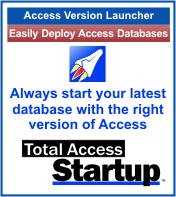 I’m attending the annual Microsoft MVP Global Summit this week in Bellevue and Redmond, WA. This is actually my first experience at this event as I was awarded the MVP title this past summer for my support of Microsoft Access.
I’m attending the annual Microsoft MVP Global Summit this week in Bellevue and Redmond, WA. This is actually my first experience at this event as I was awarded the MVP title this past summer for my support of Microsoft Access.
Over the years, FMS has had several Microsoft MVPs for Access including Dan Haught, Steve Clark, and Jim Ferguson who was one of the original MVPs when the program started 20 years ago. Book author Alison Balter and Portland Access User Group leader Jack Stockton join me as new MVPs this year. Last night we had a nice kickoff event with fellow Microsoft Access MVPs.
The MVP conference brings together 1500 professionals from across the world to this conference. The MVPs cover all the different product groups for Microsoft which offers a wonderful mix of expertise and enthusiasm. Over the next few days, the different Microsoft product groups will be providing presentations to attendees in an NDA environment. Sorry, I can’t share the content, but I can say it impacts our future planning.
Yesterday, they had a showcase of a variety of technologies from MVPs in the US plus companies from Taiwan, Japan, Germany, China, India, etc. It’s great to see the global impact of Microsoft.
How do you become an MVP? The usual path is to be involved in public forums answering questions and becoming an expert in the field. You don’t need to own a business to be an MVP. Other ways to be selected are to increase your professional visibility through products, writing books, blogs, etc. The MVP program is designed to recognize individuals who influence the market and help the community maximize the value of Microsoft products. So whether it’s XBox, Bing Maps, Dynamics, Exchange, Office 365, Excel, Outlook, PowerPoint, SharePoint, Visual Studio, Windows Phone, Word, etc., if you have a passion, expertise, and a willingness to share, the MVP community could be part of your future. Good luck!



